Find Help
More Items From Ergsy search
-
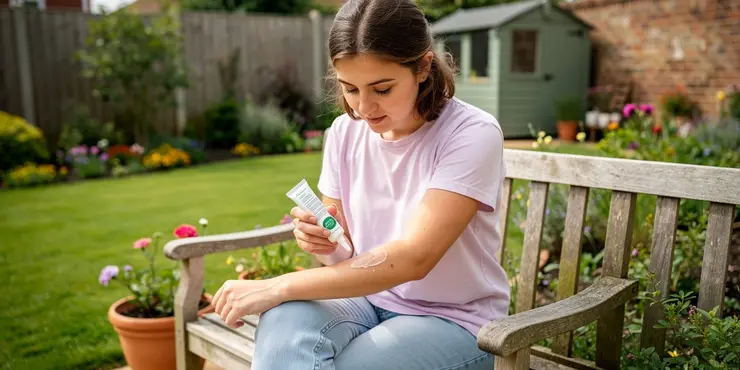
Self care - insect bites
Relevance: 100%
-
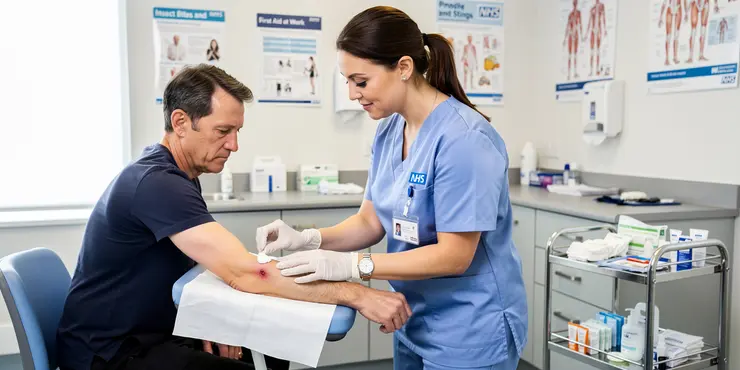
How to treat an insect bite or sting | NHS
Relevance: 68%
-

Can HIV be transmitted through insect bites?
Relevance: 67%
-
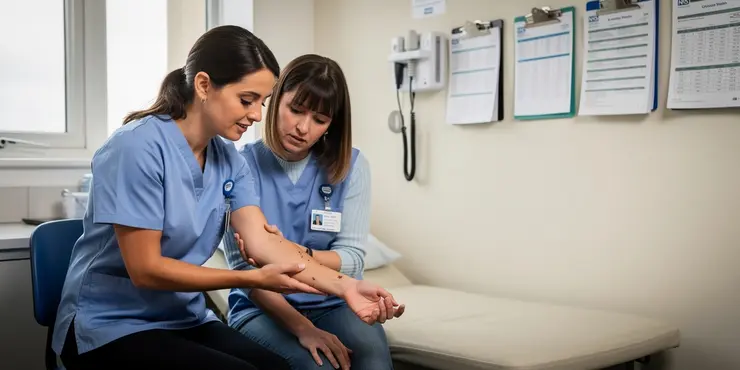
Think Pharmacy: Introduction for Bites and Stings
Relevance: 47%
-

Are mosquito bites in the UK harmful?
Relevance: 44%
-
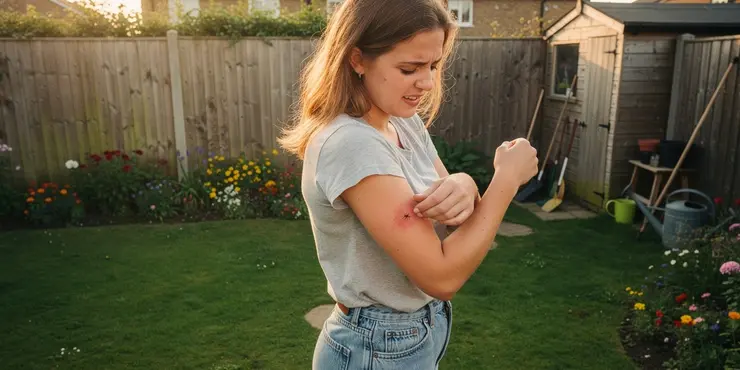
Why are mosquito bites itchy?
Relevance: 42%
-
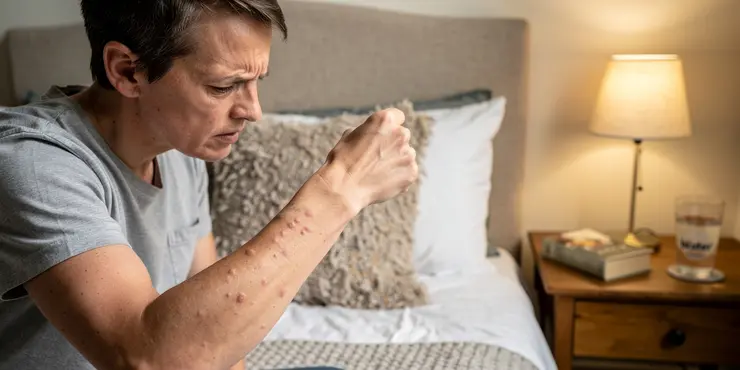
How can I tell if bites are from bed bugs?
Relevance: 41%
-
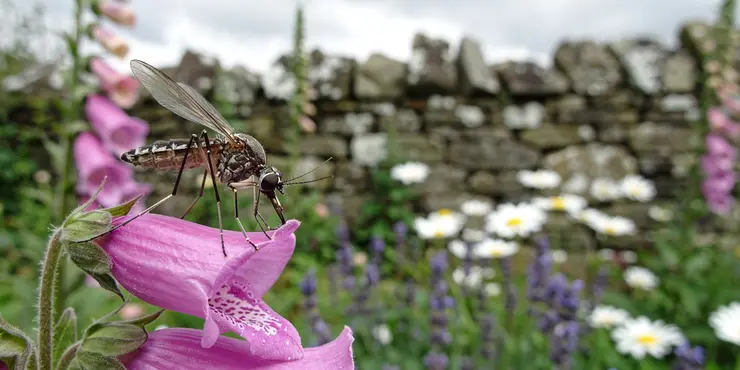
Do all mosquitoes bite humans?
Relevance: 41%
-

Is the bite from a false widow spider dangerous?
Relevance: 40%
-
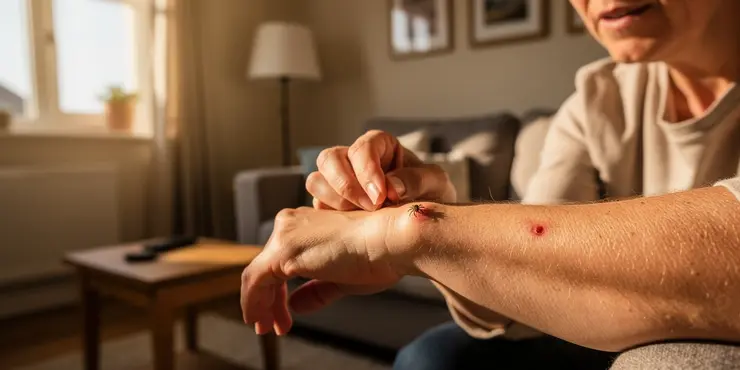
Tick Bites: Should you be worried?
Relevance: 39%
-

How can I protect myself from mosquito bites in the UK?
Relevance: 38%
-

Self care - sunburn
Relevance: 36%
-

Which spiders in the UK can bite humans?
Relevance: 36%
-
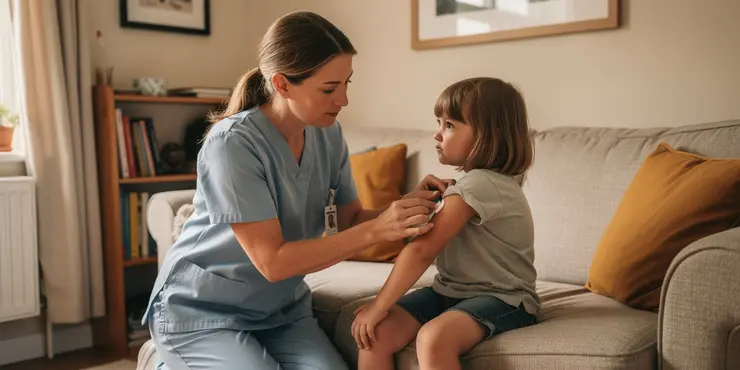
How can I treat mosquito bites?
Relevance: 35%
-
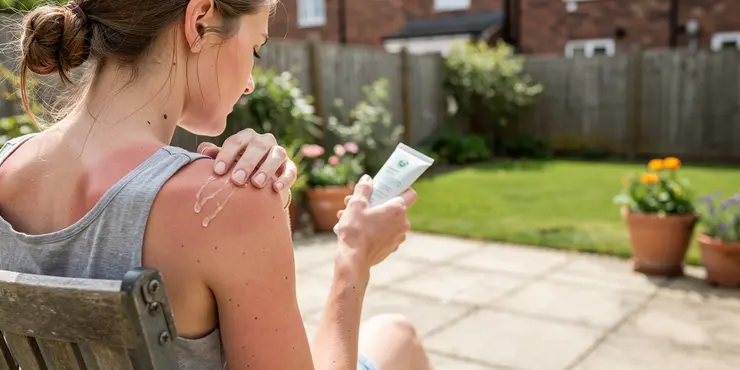
Self care - sunburn
Relevance: 35%
-
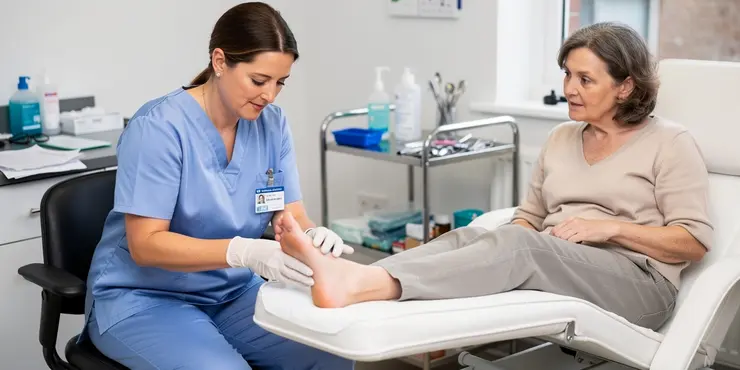
Self care for your feet - Podiatrist
Relevance: 35%
-
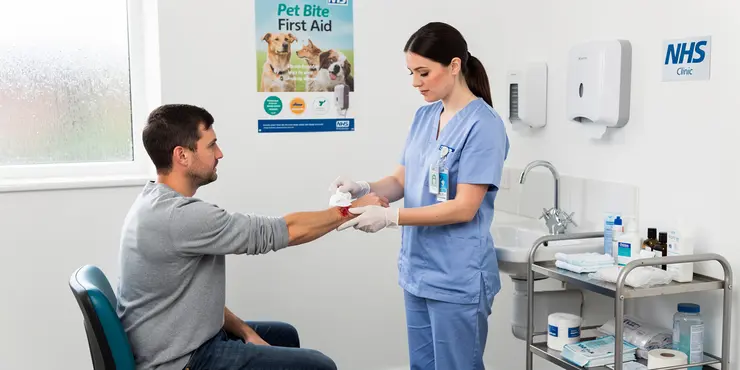
How to treat a cat bite
Relevance: 35%
-
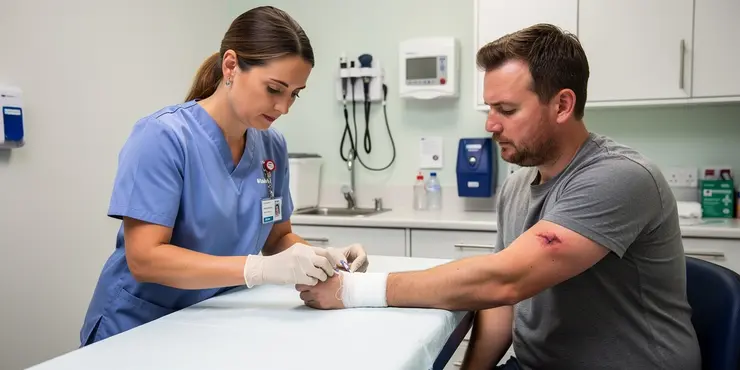
How to treat a dog bite
Relevance: 34%
-

How do I register for Self Assessment?
Relevance: 33%
-

How does DEET work to repel insects?
Relevance: 33%
-

What is a Self Assessment tax return?
Relevance: 33%
-
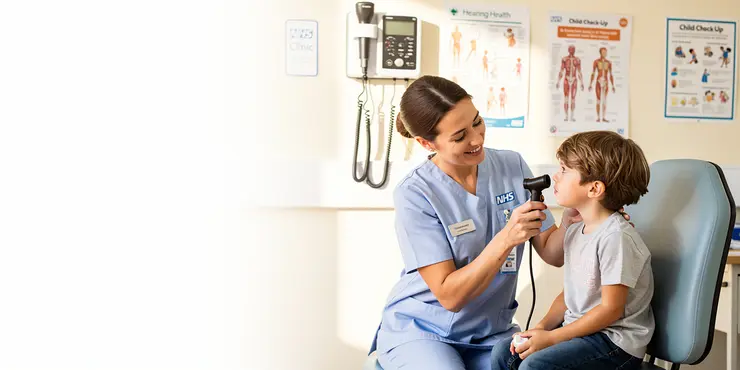
Self care: Treating ear infections
Relevance: 32%
-

My first Self Assessment tax return
Relevance: 31%
-

Can I get help from HMRC with my Self Assessment?
Relevance: 31%
-

How do I complete my Self Assessment tax return?
Relevance: 31%
-
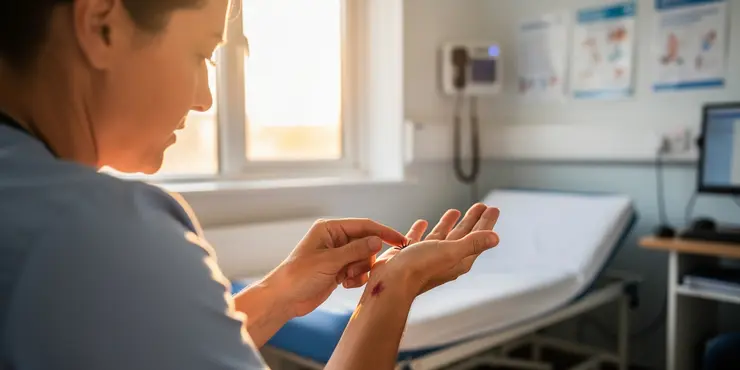
How common are spider bites in the UK?
Relevance: 30%
-

Who needs to file a Self Assessment tax return?
Relevance: 30%
-

When is the deadline for submitting my Self Assessment tax return?
Relevance: 29%
-

Do I need an accountant to file a Self Assessment tax return?
Relevance: 29%
-

What records should I keep for my Self Assessment?
Relevance: 29%
-
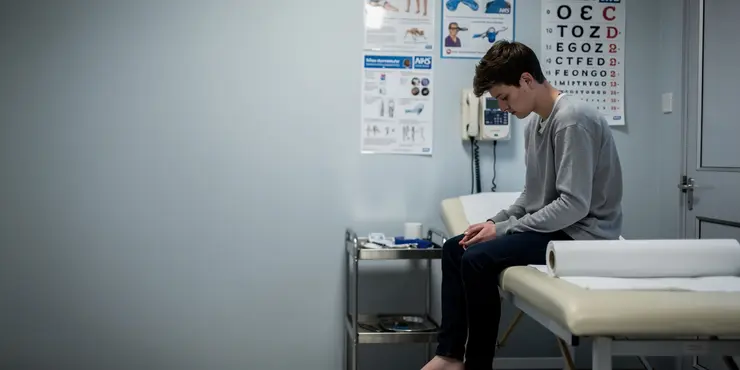
Self Harm
Relevance: 28%
-

What happens if I miss the Self Assessment deadline?
Relevance: 27%
-

Who is eligible for a Time to Pay arrangement for Self Assessment?
Relevance: 27%
-

Suicide and Self Harm Prevention Strategy 2023-28
Relevance: 27%
-

What if I owe more than £30,000 in Self Assessment tax?
Relevance: 27%
-

How to set up a Time to Pay arrangement online for Self Assessment
Relevance: 26%
-
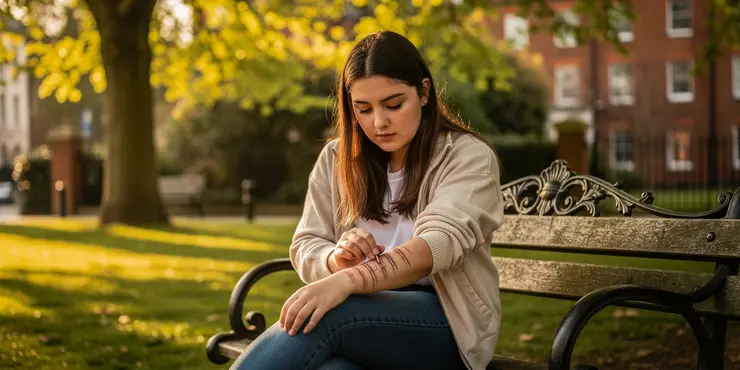
Self Harm
Relevance: 26%
-

What is a Time to Pay arrangement for Self Assessment?
Relevance: 25%
-

What information do I need to complete my Self Assessment tax return?
Relevance: 24%
-
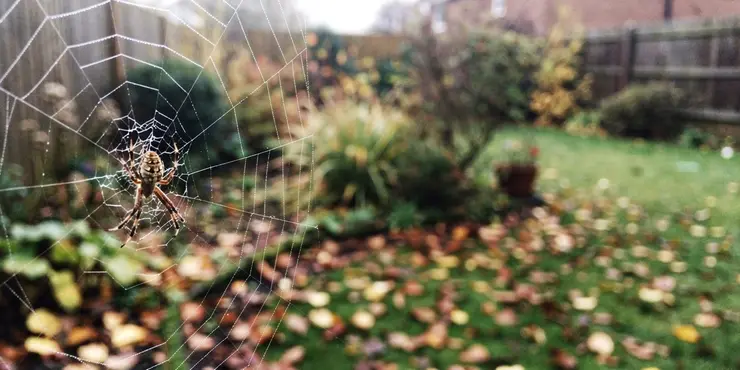
Are UK spiders venomous?
Relevance: 24%
Self-Care for Insect Bites
Identifying Insect Bites
In the United Kingdom, insect bites are a common annoyance, especially during the warmer months. Identifying the type of insect bite can help in choosing the appropriate self-care treatment. Common culprits include mosquitoes, midges, horseflies, ticks, and bedbugs. Bites typically present as red, swollen, itchy, or painful areas on the skin.Immediate First Aid
When you first notice an insect bite, wash the affected area with soap and water to reduce the risk of infection. Applying a cold compress can help lessen swelling and numb any pain. You can also use over-the-counter antihistamines to alleviate itching and swelling.Home Remedies
Numerous home remedies can provide relief from insect bites. Applying a paste made from baking soda and water can soothe the sting. Another effective remedy is aloe vera gel, which can reduce inflammation and promote healing. Honey, with its antibacterial properties, can also help prevent infection while providing relief.Over-the-Counter Treatments
Pharmacies in the UK offer various over-the-counter treatments for insect bites. Antihistamine creams, such as Anthisan or Hydrocortisone, can relieve itching and inflammation. In severe cases, hydrocortisone cream may be recommended. For pain relief, consider using non-prescription painkillers like ibuprofen or paracetamol.When to Seek Medical Attention
While most insect bites are harmless and can be treated with self-care, some cases may require medical attention. If you experience symptoms such as severe swelling, difficulty breathing, dizziness, or a spreading rash, it’s crucial to seek medical advice immediately. Additionally, bites from ticks in the UK can lead to Lyme disease; watch for a circular “bullseye” rash or flu-like symptoms and consult a healthcare professional if these develop.Prevention Tips
Preventing insect bites is the best form of self-care. When spending time outdoors, especially in wooded or grassy areas, wear long sleeves and trousers. Use insect repellent containing DEET on exposed skin and clothing. Keeping windows closed or using screens can help prevent insects from entering your home. During nighttime, using a mosquito net can provide additional protection.Conclusion
Self-care for insect bites involves a combination of immediate first aid, home remedies, and over-the-counter treatments to provide relief and prevent complications. Understanding when to seek medical help and taking preventive measures can significantly reduce the impact of insect bites on your daily life. Stay safe and enjoy the outdoors by following these simple yet effective tips.Self-Care for Insect Bites
Identifying Insect Bites
In the UK, insect bites can be irritating, especially when it is warm outside. Knowing what bit you helps you treat it better. Common bugs include mosquitoes, midges, horseflies, ticks, and bedbugs. Bites usually look red, swollen, itchy, or hurt.Immediate First Aid
When you see an insect bite, wash it with soap and water to keep it clean. Use a cold cloth on the bite to help with swelling and pain. You can take medicine from the pharmacy to stop itching and swelling.Home Remedies
There are simple things you can try at home to feel better. Mix baking soda with water to make a paste and put it on the bite. Aloe vera gel can cool the skin and help it heal. Honey is good at stopping germs and can help with swelling.Over-the-Counter Treatments
You can find creams and medicines at the pharmacy to help with insect bites. Creams like Anthisan can stop itching. For bad swelling, you might need a cream with hydrocortisone. If the bite is painful, you can take a painkiller like ibuprofen.When to Seek Medical Attention
Most bites are not serious and can be treated at home. But see a doctor if you have bad swelling, trouble breathing, feel dizzy, or see a rash getting bigger. Tick bites need special attention because they can cause Lyme disease. If you see a round rash or feel like you have the flu, talk to a doctor.Prevention Tips
The best way to deal with bites is to not get them in the first place. When you're outside, wear long sleeves and trousers. Use bug spray with DEET on your skin and clothes. Keep windows closed or use screens to keep bugs out of your house. At night, use a mosquito net over your bed.Conclusion
Taking care of insect bites means cleaning the bite, trying home remedies, and using pharmacy treatments. Know when to see a doctor and try to stop bites from happening. Following these tips can help you stay safe and enjoy being outside.Frequently Asked Questions
What should I do immediately after getting an insect bite?
Wash the bite area with soap and water, then apply a cold compress to reduce swelling.
Should I scratch an insect bite?
Avoid scratching as it can lead to infection. Use anti-itch creams or lotions to alleviate discomfort.
What over-the-counter treatments can I use for insect bites?
You can use antihistamine creams, hydrocortisone cream, or calamine lotion to ease itching and swelling.
When should I seek medical attention for an insect bite?
Seek medical advice if you experience severe swelling, difficulty breathing, or signs of infection such as pus or increased redness.
Are there any home remedies for insect bites?
Applying a paste of baking soda and water, or dabbing the area with apple cider vinegar, may help relieve itching and pain.
What are signs of an allergic reaction to an insect bite?
Signs include difficulty breathing, swelling of the face or throat, dizziness, or a rapid heartbeat. Seek emergency medical help if you experience any of these symptoms.
How can I prevent insect bites?
Use insect repellent, wear long sleeves and trousers, and avoid areas with high insect activity.
Can insect bites cause infections?
Yes, especially if the bite is scratched and the skin is broken. Keep the area clean and use antiseptic creams if necessary.
What insects are common in the UK that might bite?
Common biting insects in the UK include mosquitoes, midges, horseflies, and fleas.
Is it safe to use essential oils to treat insect bites?
Some essential oils, like tea tree oil or lavender oil, can have soothing properties, but always dilute them with a carrier oil and perform a patch test first.
Does ice help with insect bites?
Yes, applying an ice pack can help reduce swelling and numb the area to alleviate pain.
How long do insect bites typically take to heal?
Most insect bites heal within a few days to a week, depending on the severity and how they are treated.
Can I take oral antihistamines for insect bites?
Yes, oral antihistamines like cetirizine or loratadine can help relieve itching and allergic reactions.
Is there a way to stop insect bites from itching?
Applying topical treatments, cold compresses, or taking an antihistamine can help reduce itchiness. Avoid scratching to prevent further irritation.
Can insect bites leave scars?
While most bites heal without scarring, excessive scratching or infection can lead to scarring. Keeping the area clean and treated can help prevent this.
What should I do right after an insect bites me?
If an insect bites you, stay calm. Here are some easy steps to follow:
- Move away from the insect.
- Wash the bite gently with soap and water.
- Put a cool cloth or ice on the bite to stop swelling.
- If it itches, ask an adult for cream to help.
- Tell an adult if you feel sick.
Use a timer to keep track of how long to keep the ice on.
Wash the bite spot with soap and water. Then, put something cold on it to help it not swell up.
Can I scratch an insect bite?
If a bug bites you, it can make your skin itchy.
Scratching might feel good, but it can make things worse.
Scratching too much can hurt your skin or make it red.
You can try these things to help:
- Put a cold cloth on the bite.
- Use a special cream for bug bites.
- Ask an adult for help.
- Try not to scratch too hard.
Try not to scratch. Scratching can make the skin get cuts and germs, which might cause an infection. You can use special creams or lotions that stop itching and can help you feel better.
What medicines can I buy for bug bites?
If a bug bites you, there are medicines you can buy without a doctor's note. These are called "over-the-counter" medicines.
Medicines can help the itch and swelling go away. Some come as creams. Some come as pills.
You can ask a pharmacist for help. A pharmacist is someone who knows about medicines.
You can also try using an ice pack to feel better.
You can use special creams to help with itching and swelling. These are called antihistamine creams, hydrocortisone cream, or calamine lotion. You can ask an adult or a pharmacist to help you find these creams.
When should I see a doctor for an insect bite?
Sometimes, an insect bite can make you sick. Here is when to see a doctor:
- If the bite gets bigger fast or turns very red.
- If you feel dizzy or have trouble breathing.
- If the bite hurts a lot or makes you feel very sick.
- If lots of bites appear all over your body.
You can use these tools to help:
- Ask someone you trust to help you read this list.
- Draw pictures to remember when to see a doctor.
Talk to a doctor if you have bad swelling, can't breathe well, or see signs of an infection. Signs of an infection can be yellow stuff coming out or your skin getting more red.
What can I do at home if an insect bites me?
If a bug bites you, don't worry! Here are some simple things you can do:
- Wash the bite with soap and water. This keeps it clean.
- Put a cold cloth on the bite. This helps with swelling.
- If the bite itches, use a cream to stop it. Ask an adult for help.
- If it hurts, you can take a pain reliever. Ask an adult first.
It's best to ask an adult for help. You can also use pictures or videos to understand better.
You can make a mix of baking soda and water. Put this mix on your itchy or sore skin.
You can also use apple cider vinegar. Dab some on the itchy or sore spot. This might help you feel better.
What happens if you are allergic to an insect bite?
Sometimes, when an insect bites you, your body might not like it. This is called an allergic reaction.
You might see:
- Your skin gets red or swells up.
- The bite area is very itchy.
- You might get small bumps on your skin.
- Your breathing might become hard.
If this happens, tell an adult or a doctor. They can help you feel better. It can help to have medicine like an adult gives you for allergies.
Signs include trouble breathing, a swollen face or throat, feeling dizzy, or a fast heartbeat. Call for emergency help if you have any of these signs.
How can I stop insect bites?
Here are some tips to help you stay safe from insect bites:
- Wear long clothes: Put on long sleeves and pants to cover your skin.
- Use insect spray: Get a spray that keeps bugs away. Ask an adult to help you use it.
- Stay inside at dawn and dusk: Bugs are active when the sun rises and sets. Try to stay indoors.
- Use window screens: Keep bugs out by closing windows or using screens.
- Avoid bright lights: Bugs like bright lights, so keep them off if possible.
Ask a trusted adult for help if you’re not sure what to do.
Use bug spray. Wear long sleeves and pants. Stay away from places with lots of bugs.
Can bug bites make you sick?
If a bug bites you, it can sometimes make you sick.
This can happen if germs get inside the bite.
If you get sick, you might need to see a doctor.
You can use a magnifying glass to look at the bite.
You can also ask someone to help you read about bites.
Yes, an insect bite can get infected if you scratch it too much. This can break the skin. Make sure to clean the bite. You can use cream to stop germs from making it infected.
If you find reading hard, you can:
- Use audiobooks to listen to stories.
- Try reading with a friend or family member.
- Look for books with pictures.
What insects in the UK might bite you?
Here are some insects in the UK that can bite:
- Midges: These are tiny flies that can bite and make you itch.
- Mosquitoes: These insects can leave a red, itchy bump when they bite.
- Horseflies: These are bigger flies and their bite can hurt a lot.
- Fleas: These small insects can bite and make your skin itch.
To stop these bites:
- Use insect repellent on your skin.
- Wear long sleeves and pants when outside.
- Stay away from places with lots of insects.
In the UK, some bugs that bite people are mosquitoes, midges, horseflies, and fleas.
Are essential oils safe for insect bites?
Essential oils come from plants. Some people use them on insect bites. But are they safe?
- Ask a doctor before using essential oils.
- Always mix with another oil, like olive oil, before putting on skin.
- Try a little bit first to see if your skin is okay with it.
If you have doubts, ask a grown-up or your doctor.
Some oils can help you feel calm, like tea tree oil or lavender oil. But remember, mix them with another oil first. Try a little bit on your skin to make sure it's safe for you.
Can ice help with bug bites?
If a bug bites you, it might make your skin itchy or swollen. You can try putting ice on it to feel better.
Ice can make the bite less itchy and less puffy. Wrap some ice in a cloth and hold it on the bite for a few minutes.
Using ice is easy and can help you feel better fast!
Yes, putting an ice pack on can help. It makes swelling go down and can make the area feel numb. This can help stop the pain.
How long do insect bites take to get better?
When an insect bites you, it can make your skin sore and itchy.
Most insect bites get better in a few days. Sometimes it can take a week.
If the bite does not get better, or if it gets worse, it's good to ask an adult for help. You might need to see a doctor.
Using a cold cloth or ice pack on the bite can help it feel better. Creams from the pharmacy can help with itching, too.
Insect bites usually get better in a few days to one week. This can depend on how bad the bite is and how you take care of it.
Can I take medicine for itchy bites?
If a bug bites you, it might itch or hurt.
You can take a special medicine called an oral antihistamine. This medicine helps stop itching.
Ask a grown-up or doctor if it's okay for you to take this medicine.
A helpful tool is to use a sticky note to remind you when to take your medicine.
Yes, taking medicine like cetirizine or loratadine can help stop itching and allergies.
How can I stop bug bites from itching?
If a bug bites you, it might itch. Here are some ways to help stop the itching:
- Wash the area: Clean the bite with water and soap. This helps remove dirt and germs.
- Use a cold pack: Put a cold cloth or ice pack on the bite. It will help numb the itch.
- Anti-itch cream: Ask an adult to help apply a cream from the pharmacy to help with itching.
- Keep nails short: Try not to scratch. It can make the bite worse. Keeping nails short can help.
If the bite is very itchy or swollen, tell an adult. They can help you find more ways to feel better.
To make your skin feel less itchy, you can put medicine cream on it. You can also use a cold, wet cloth or take special medicine called antihistamines. Do not scratch your skin because it can make it worse.
Do insect bites leave marks?
Sometimes when an insect bites you, it can leave a mark on your skin.
- This mark is called a scar.
- You can help your skin heal by keeping it clean.
- Try not to scratch. Scratching can make the scar worse.
- If you are worried, talk to a grown-up or a doctor.
Most bites get better without leaving a mark. But if you scratch too much or if it gets infected, it can leave a scar. Keep the bite clean and use medicine to stop this from happening.
Useful Links
This website offers general information and is not a substitute for professional advice.
Always seek guidance from qualified professionals.
If you have any medical concerns or need urgent help, contact a healthcare professional or emergency services immediately.
Some of this content was generated with AI assistance. We’ve done our best to keep it accurate, helpful, and human-friendly.
- Ergsy carfully checks the information in the videos we provide here.
- Videos shown by Youtube after a video has completed, have NOT been reviewed by ERGSY.
- To view, click the arrow in centre of video.
- Most of the videos you find here will have subtitles and/or closed captions available.
- You may need to turn these on, and choose your preferred language.
- Go to the video you'd like to watch.
- If closed captions (CC) are available, settings will be visible on the bottom right of the video player.
- To turn on Captions, click settings .
- To turn off Captions, click settings again.
More Items From Ergsy search
-

Self care - insect bites
Relevance: 100%
-

How to treat an insect bite or sting | NHS
Relevance: 68%
-

Can HIV be transmitted through insect bites?
Relevance: 67%
-

Think Pharmacy: Introduction for Bites and Stings
Relevance: 47%
-

Are mosquito bites in the UK harmful?
Relevance: 44%
-

Why are mosquito bites itchy?
Relevance: 42%
-

How can I tell if bites are from bed bugs?
Relevance: 41%
-

Do all mosquitoes bite humans?
Relevance: 41%
-

Is the bite from a false widow spider dangerous?
Relevance: 40%
-

Tick Bites: Should you be worried?
Relevance: 39%
-

How can I protect myself from mosquito bites in the UK?
Relevance: 38%
-

Self care - sunburn
Relevance: 36%
-

Which spiders in the UK can bite humans?
Relevance: 36%
-

How can I treat mosquito bites?
Relevance: 35%
-

Self care - sunburn
Relevance: 35%
-

Self care for your feet - Podiatrist
Relevance: 35%
-

How to treat a cat bite
Relevance: 35%
-

How to treat a dog bite
Relevance: 34%
-

How do I register for Self Assessment?
Relevance: 33%
-

How does DEET work to repel insects?
Relevance: 33%
-

What is a Self Assessment tax return?
Relevance: 33%
-

Self care: Treating ear infections
Relevance: 32%
-

My first Self Assessment tax return
Relevance: 31%
-

Can I get help from HMRC with my Self Assessment?
Relevance: 31%
-

How do I complete my Self Assessment tax return?
Relevance: 31%
-

How common are spider bites in the UK?
Relevance: 30%
-

Who needs to file a Self Assessment tax return?
Relevance: 30%
-

When is the deadline for submitting my Self Assessment tax return?
Relevance: 29%
-

Do I need an accountant to file a Self Assessment tax return?
Relevance: 29%
-

What records should I keep for my Self Assessment?
Relevance: 29%
-

Self Harm
Relevance: 28%
-

What happens if I miss the Self Assessment deadline?
Relevance: 27%
-

Who is eligible for a Time to Pay arrangement for Self Assessment?
Relevance: 27%
-

Suicide and Self Harm Prevention Strategy 2023-28
Relevance: 27%
-

What if I owe more than £30,000 in Self Assessment tax?
Relevance: 27%
-

How to set up a Time to Pay arrangement online for Self Assessment
Relevance: 26%
-

Self Harm
Relevance: 26%
-

What is a Time to Pay arrangement for Self Assessment?
Relevance: 25%
-

What information do I need to complete my Self Assessment tax return?
Relevance: 24%
-

Are UK spiders venomous?
Relevance: 24%


